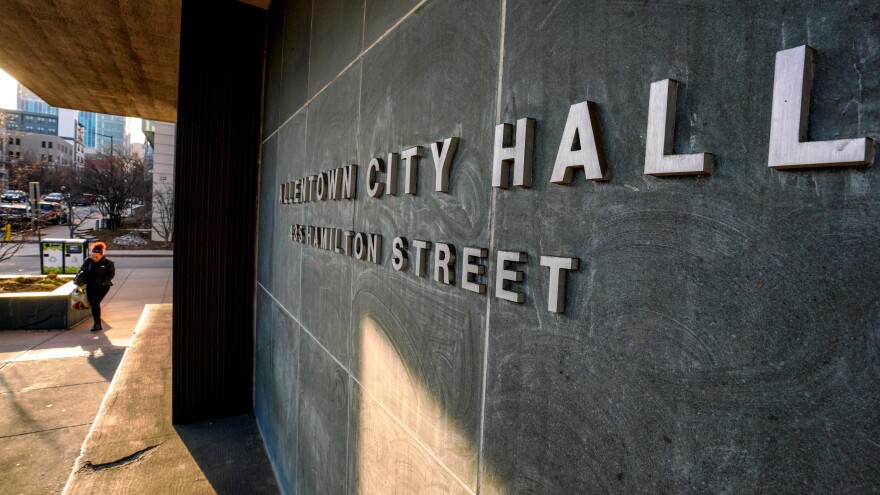ALLENTOWN, Pa. — Allentown City Hall could draw a crowd Wednesday evening, with city council members set to open debate over a proposal to send EMTs and mental health professionals instead of police to some 911 calls.
More than 2,000 Allentown residents signed a petition that calls for the city to create an “alternative first-response” program for issues that “should not and cannot be adequately addressed by police.”
- Allentown City Council will consider a resident-led effort to establish an "alternative first-response" program in the city
- Allentown's police chief and mayor are urging council to vote down the proposal
- Council is set to hold a special meeting at 5:30 p.m. Wednesday on the measure
A group submitted those signatures to the city last month, forcing the measure onto the Allentown City Council's agenda.
Council introduced the proposed ordinance at its May 3 meeting, where about 50 people almost filled the room.
Many supporters urged members to pass it before Allentown Police Chief Charles Roca said it advances “police-abolitionist goals” and is “defund-the-police rhetoric.”
Council members scheduled a special meeting at 5:30 p.m. Wednesday to discuss the proposal ahead of its regular meeting, which starts an hour later.
That meeting’s agenda includes no reference to the proposal, indicating council does not plan to take a final vote Wednesday.
Alternative first-response teams
The proposal calls for Allentown City Council to pass an ordinance establishing “mobile community response teams” that consist of an emergency medical services professional and a behavioral or mental health specialist.
The two-person teams would respond to 911 calls involving mental and behavioral health issues, substance use and welfare checks.
“I think that this ordinance and putting it to the voters is really going to be about what kind of city we want Allentown to be. I think we want to be a city that brings specialists and experts to bear on issues that they have special training for.”Allison Mickel, who helped gather signatures for the petition
They also would be dispatched for quality-of-life complaints, including disputes between families or neighbors and calls about unhoused or suspicious people, the proposed ordinance says.
Mobile community response teams would not be paired with armed officers and would be required to only call police for back-up “as a last resort” after failed efforts to de-escalate a situation, according to the ordinance.
The one-year program would cost just over $4 million, though Councilwoman Ce-Ce Gerlach — who voiced her support for the measure last month — said efforts should be made to lower the program’s price “instead of just shooting it down.”
Allison Mickel, who helped gather signatures for the petition, told council the proposal is not “a referendum on the police and their ability to do their jobs.”
“I think that this ordinance and putting it to the voters is really going to be about what kind of city we want Allentown to be,” Mickel said. “I think we want to be a city that brings specialists and experts to bear on issues that they have special training for.”
Potential ballot initiative
Police Chief Roca said last month that “these are services that complement a police response, they are not a replacement for it.”
Roca said the police department is working with Pinebrook Family Answers to send community intervention specialists to some 911 calls that don’t require police.
"It would be 'irresponsible' for the city to spend $4 million on a pilot program similar to what already is being done."Pinebrook Family Answers Chief Executive Officer Bill Vogler
Pinebrook Family Answers Chief Executive Officer Bill Vogler said it would be “irresponsible” for the city to spend $4 million on a pilot program similar to what already is being done.
Vogler and Roca also noted Lehigh County 911 dispatchers would have to quickly determine which type of responder to send to emergency situations.
Allentown residents could end up deciding the fate of the proposed pilot program.
Residents collected enough signatures in support of the program to ensure it will be put in front of voters in November if it is not approved by council.
If council doesn't pass a proposed initiative or referendum with at least 2,000 signatures, it is placed on ballots during the next election, according to the city’s ordinances.
Allentown Mayor Matt Tuerk has urged council to reject the proposal and send it to voters in fall.


